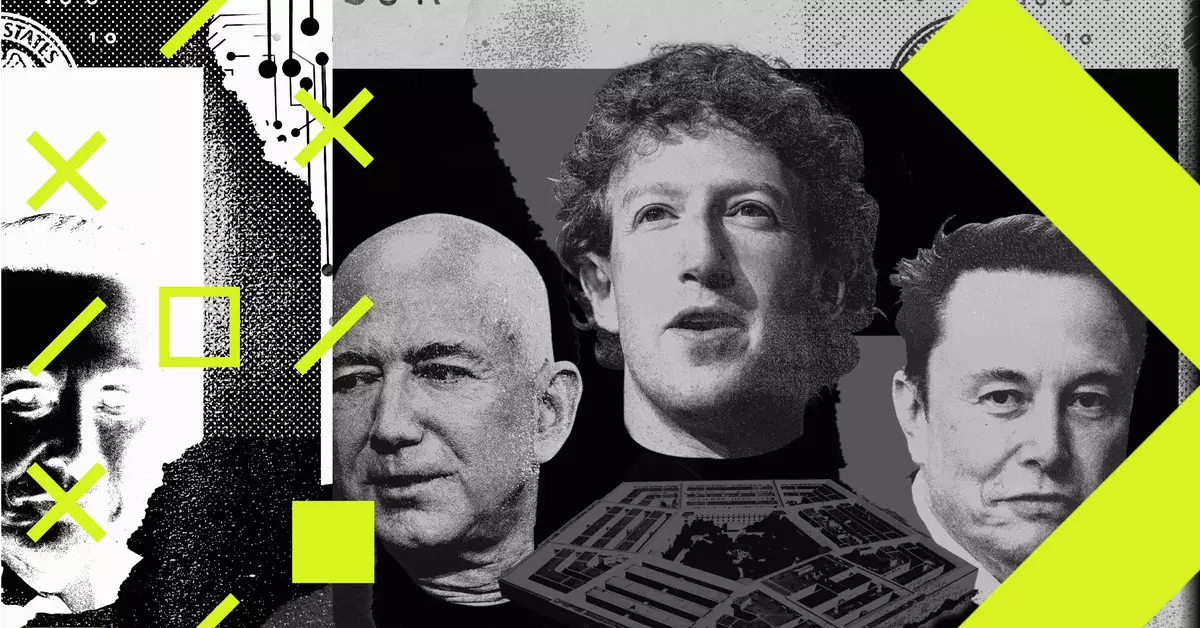The intertwining of politics and technology has reached a critical juncture in the wake of the second Trump administration. This new era starkly illustrates the burgeoning influence of tech giants like Meta and TikTok, both of which have found themselves at the epicenter of contentious debates surrounding free speech and online governance. Recent events suggest that not only are these companies grappling with internal policy changes, but they are also navigating the complex waters of international relations and governmental oversight. The stakes have never been higher, as the ramifications of these decisions reverberate through the digital lives of billions.
Meta, the parent company of Facebook and Instagram, has made headlines with its controversial decision to relax its content moderation guidelines. This shift allows for a wider array of hate speech and slurs across its platforms, provoking widespread public outcry and concerns about the potential for increased hate incidents online. Mark Zuckerberg’s recent announcements not only indicate a calculated pivot towards community-driven content moderation but also signify a potential alignment with the political ideologies of the new administration. Critics argue that this move towards less stringent oversight is a calculated attempt to cater to a political base, thereby managing perceptions of Meta’s role in the political landscape.
The implications of such policy changes extend beyond national borders. As the European Union rolls out its Digital Services Act, which targets online content moderation with stringent regulations, Meta’s lighter approach to moderation may invite scrutiny and repercussions. Zuckerberg’s attempt to engage the Trump administration for leverage could set a dangerous precedent, blurring the lines between corporate interests and national policy in a way that fundamentally alters how free speech is understood online.
Conversely, TikTok’s situation is a cautionary tale about the intersection of innovation, culture, and government control. The app’s tumultuous journey reflects a broader narrative of geopolitical tensions, particularly between the U.S. and China. The recent ban and subsequent unban of TikTok underscore the platforms’ precarious position as a pawn in a larger political chess game. This is not merely a problem of user data privacy; it represents a paradigm where digital platforms are leveraged to assert national power and influence.
Former President Trump’s maneuvering in this theater, particularly regarding proposals for U.S. government ownership of a portion of TikTok, creates a Pandora’s box of legal challenges. Such an arrangement raises significant First Amendment concerns and invites scrutiny regarding the government’s role in regulating speech on private platforms. By ignoring existing laws and attempting to weaponize the app for political capital, the administration has opened a floodgate of ethical and legal dilemmas that will be difficult to navigate.
Emerging from these developments is a concept dubbed “gangster tech regulation,” which describes a style of governance that focuses more on outcomes than the legitimacy of the processes leading to those outcomes. This approach gives rise to enormous opportunities for corruption and autocratic behaviors, where political power is prioritized over fair and equitable governance of digital spaces. The recent legislative maneuvers surrounding TikTok epitomize this troubling paradigm.
As illustrated by Kate Klonick’s insights, the discombobulated methods of this administration’s dealings with tech companies complicate our understanding of free speech and corporate responsibility. In a day and age where social media plays a crucial role in shaping public discourse, how do we reconcile the responsibilities of private companies with the anticipation for governmental oversight that respects constitutional rights?
Ultimately, the unfolding drama plays out against a backdrop of public ambivalence. Everyday users find themselves as reluctant participants in a larger geopolitical and moral struggle. Social media platforms have become arenas not just for social interactions but battlegrounds for ideologies—the very essence of free speech. As these companies modify their guidelines to straddle the chasm between political allegiance and moral responsibility, individuals are left grappling with how to navigate this complex digital terrain.
The consequences of these decisions are not only significant for tech corporations and political figures but also for users across the globe. If users are subjected to environments fostering hate speech and divisive rhetoric in the name of free expression, the ethical implications for society are profound. It is essential to advocate for frameworks that prioritize both responsible policy and user protection, preserving the integrity of online spaces in a time of unprecedented digital upheaval.
As the landscape of tech regulation continues to evolve, stakeholders from all sectors must remain vigilant. The intersection of technology and government is fraught with complexities that challenge our fundamental understanding of free speech, corporate accountability, and international relations. The need for a critical examination of how power dynamics play out in the digital realm has never been more apparent. By fostering dialogue and encouraging responsible policy-making, we may yet chart a course toward a more equitable future online.

